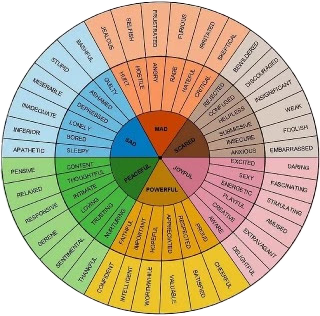I have often said to our sons, “Well, I guess that experience has taught you how you don’t want to treat another person.” The greatest teacher is experience. I’d argue that although wonderful and euphoric situations give us joy and provide us with lasting memories, it’s those difficult times that deliver the deep resonating lessons. The lessons that challenge our perceptions and teach us what it is like to be on the receiving end of negativity. We have the choice to apply this learning to improve our relationship-building skills. The alternative is that we wallow in self-pity and bitterness.


Natalie Nixon’s presentation on The Great Leadership Reset Forum illuminated how creativity and empathy are directly linked in design thinking. She emphasises the importance of thinking creatively especially given our world that is in a huge reset. She stresses that creativity is teachable and challenges us to create cultures of creativity through:
- Inquiry – We need to be curious. Nixon points out that we can’t empathize with another unless we are open to asking questions and listening to the answers.
- Intuition – We need to listen to the voices within.
- Improvisation – We need to be willing to experiment and think outside the box. We can’t fear mistakes, but ambiance them and readjust our sails. Nixon refers to lateral thinking as being limiting. As such it is critical that we think divergently outside the box.
Natalie Nixon’s three I’s can be applied to parenting. As parents, we can engage in all three of these strategies but equally important, we can coach our children to practice these skills. Moreover, these skills are what maintain a humble mindset. Our egos are kept in check. The ultimate result is that we further develop our ability to understand and empathize with others.
As a teacher and parent, what did I want for the young people in my life? I wanted them to learn to build strong positive relationships in their lives. My goal was to help facilitate this positive growth mindset. I found myself constantly having discussions with our sons or the students to choose to disengage from their emotions then try to step away from a situation and think of what the other person might be thinking or perceiving. I found myself referencing the Stephen Covey training I received that encouraged, “Seeking to Understand”. Empathy is where we can begin to make effective choices in nurturing positive bonds.


Nixon and all the speakers presenting during The Great Leadership Reset Forum are echoing the importance of our global interconnectedness and the critical need for everyone to come to a point of collaboration and understanding. A siren is sounding for leaders to empathize and build a healthier Earth. But we must take another step and bring this message of empathy to our seedlings, our children in our homes.
Let us remember: It is through the interconnectedness strength of relationships that fosters and nurtures growth in social and life cycle systems. Growth then begets balance and sustainability of relationships which ultimately leaves us with a sense of success, joy, and contentment in our work and home lives.
Quick Take Away Links
An article that applies to our roles as leaders at work and home:
Great articles with parenting strategies:








[…] https://mcrolston.com/what-critical-emotional-intelligence-skill-must-we-develop-in-our-children-emp… […]
[…] Are YOU Ready to let Minute Mindful Moments Magically Move Mountains? Prev Post […]